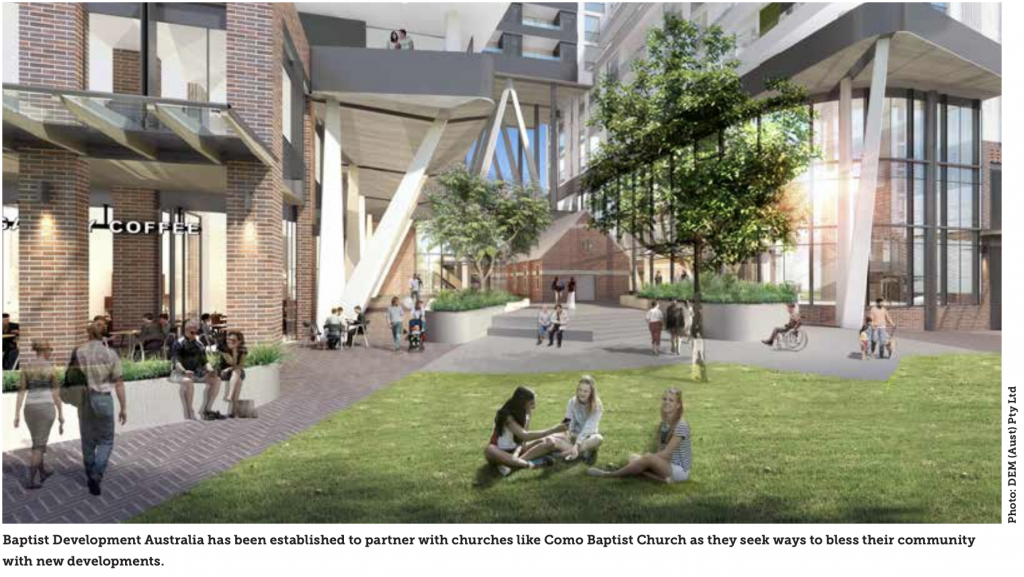Baptist Development Australia (BDA) is a new Baptist Financial Services (BFS) initiative established to work with churches that have redevelopment opportunities.

Chief Executive Officer of BFS, David Slinn discussed the background to the initiative. “Churches sometimes have sites which can support broader activities that may have a commercial element that can help cover the cost of building new church facilities or new church initiatives,” David said. David shared that BFS identified three key issues in forming BDA, which were critical to making such developments possible and successful for churches: having the right expertise and knowledge to manage a redevelopment process well; understanding how the church can be integrated into any new development, including how the development can be managed alongside the church once completed; and having risk capital to invest, particularly at the early stages of a project, such as obtaining development approval, which can involve significant expenditure. Australian Baptist Ministries National Ministries Director, Pastor Mark Wilson spoke of his enthusiasm for BDA.
“It is a significant and exciting initiative for the Baptist community that BFS has put aside dedicated risk capital for BDA to be able to progress redevelopment opportunities with churches on a larger scale than was previously possible.” David Slinn expanded on the vision for BDA. “It represents an amazing opportunity to make the church more central to communities, as churches create community by providing a place to meet and gather.” “Placemaking is a well-known and key urban design principle to make development projects successful – this is about connecting people, communities and the church together,” David said. Forms of development can take many shapes and sizes, and can include simple things like a corner store, medical services or office facilities, to larger and more complex needs such as childcare, education, sporting facilities or residential development. David shared that the key focus of any development is to work with the local church community as they formulate their project vision on outcomes that are viable and achievable. This needs to be integrated well with the church’s overall vision and to be owned and held by the church, rather than by the developer. A church can have great facilities and financial outcomes, but they are just tools that need to be fit for purpose to support the needs of church in building connections and relationships. In the post Christendom era, there is great diversity in what church looks like these days. The focus of BDA is to help churches in the context they are situated in and where a project is viable. It won’t work in every situation. The focus is capturing and realising those opportunities where they are.

